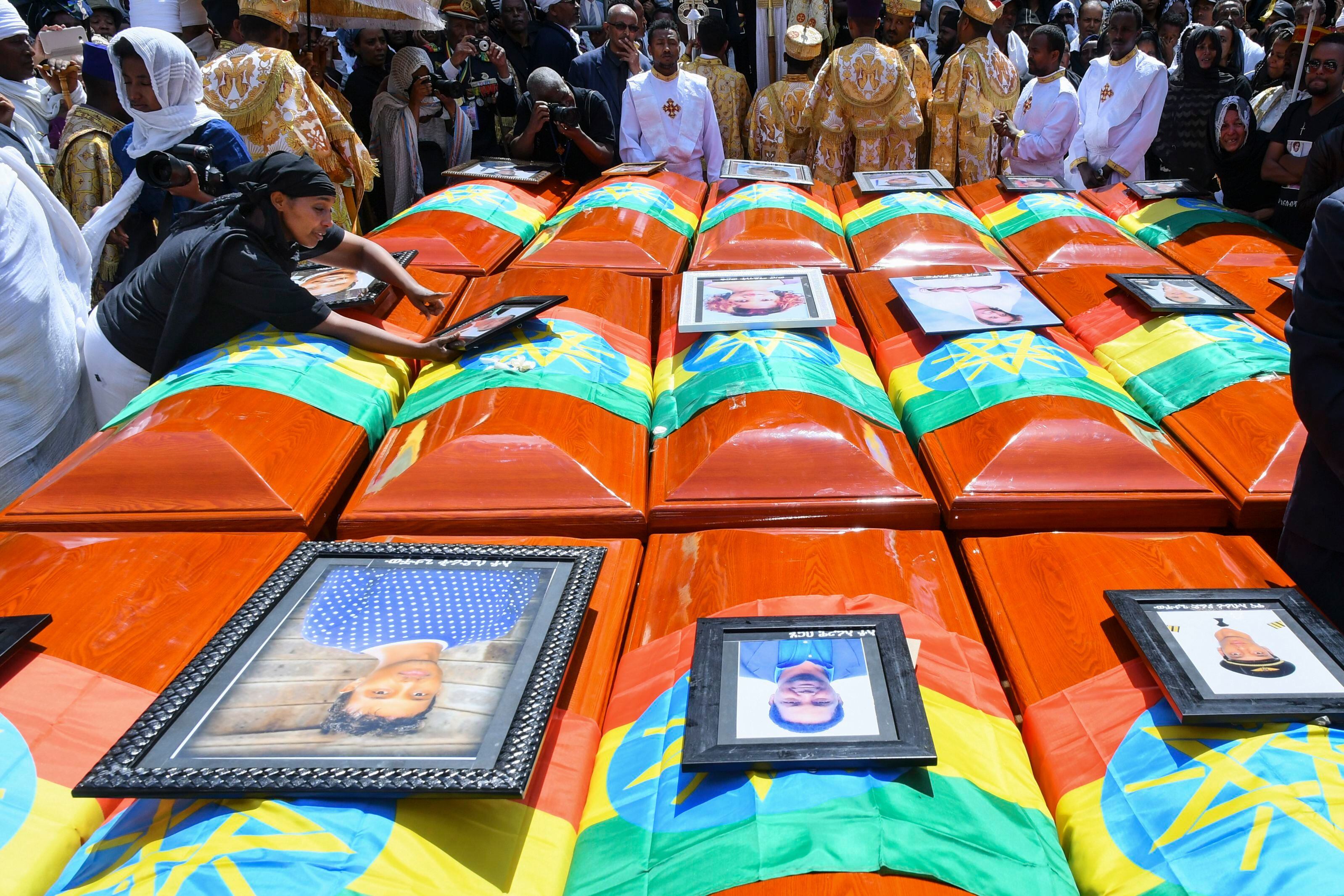Nearly a year since the first of two 737 Max planes went down, Boeing has begun providing financial compensation to hundreds of bereaved loved ones. Formally launched last week, the Boeing Financial Assistance Fund (BFAF) is set to pay out a total of $50 million to nearly 350 families.
"We are not looking to the financial wherewithal of the family or any passenger lost in those two accidents. All lives are equal and everyone will receive the same amount of money," said Kenneth Feinberg, BFAF's co-administrator.
Each family will get roughly $145,000 from the fund.
Lion Air flight 610, which crashed off the coast of Indonesia on October 29, 2018, was the first 737 Max plane to crash and killed all 189 people on board. Just five months later, 157 people were killed on another 737 Max plane, Ethiopian Airlines flight 302, which went down shortly after takeoff in Ethiopia's capital, Addis Ababa. The back-to-back crashes led to a global grounding of all 737 Max planes, disturbing air travel worldwide.
In the subsequent months, investigators and a company probe found that Boeing did not provide proper training for the plane's anti-stall software, called MCAS, which malfunctioned and sent the planes into nosedives. Federal regulators also came under fire for allowing an easing of inspection scrutiny on new aircrafts at the time.
"The recent 737 MAX tragedies weigh heavily on all of us at Boeing, and we continue to extend our deepest sympathies to the families and loved ones of all those on board," Dennis Muilenburg, Boeing's president and CEO, said in a statement. "The opening of this fund is an important step in our efforts to help affected families."

Feinberg and co-administrator Camille Biros were hired by Boeing to manage the BFAF. The two veteran attorneys have extensive resumes, having previously administered the September 11th Victim Compensation Fund of 2001, the Gulf Coast Claims Facility for victims of the Deepwater Horizon Oil Spill in 2010, and the One Fund Boston for victims of the 2013 Boston Marathon bombing, among others.
Families can receive the BFAF voluntarily and receiving funds does not bar recipients from pursuing separate damages through litigation.
"This is a separate stand alone assistance program," Feinberg said. Money will be dispersed "without any precondition, without any requirements, without any promises … to be used as each family may so decide."
The $50 million fund is half of the $100 million that Boeing pledged to provide following the two accidents. The other $50 million will be used to support development programs in the impacted communities, Boeing said in a press release.








